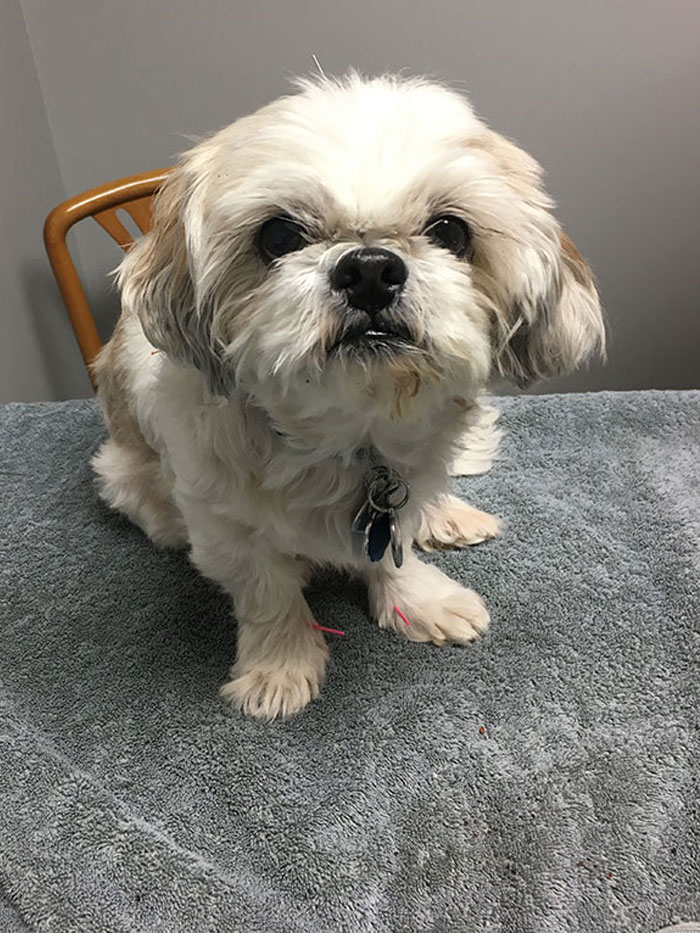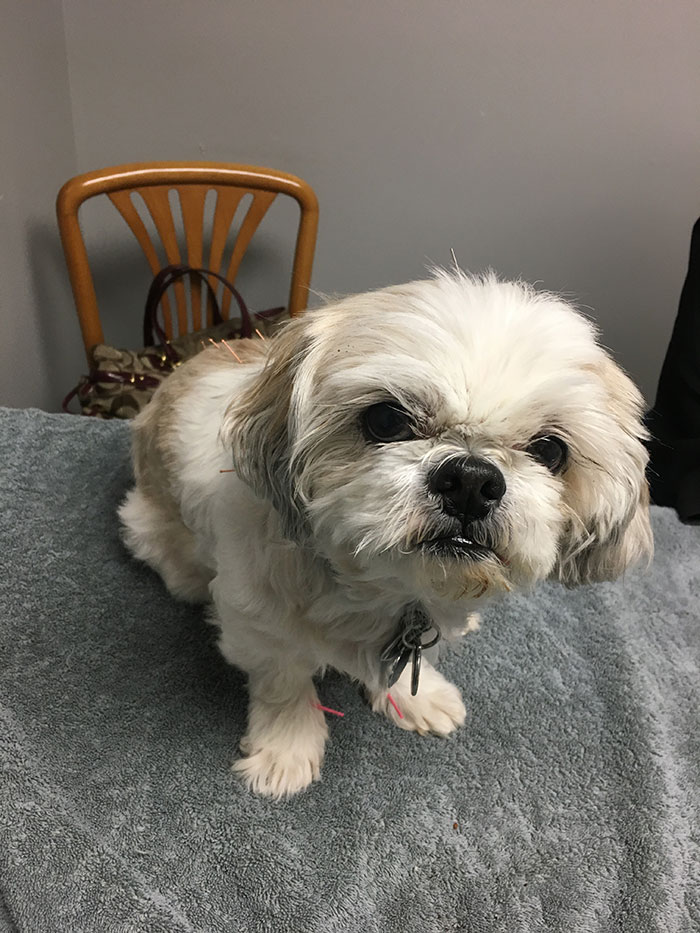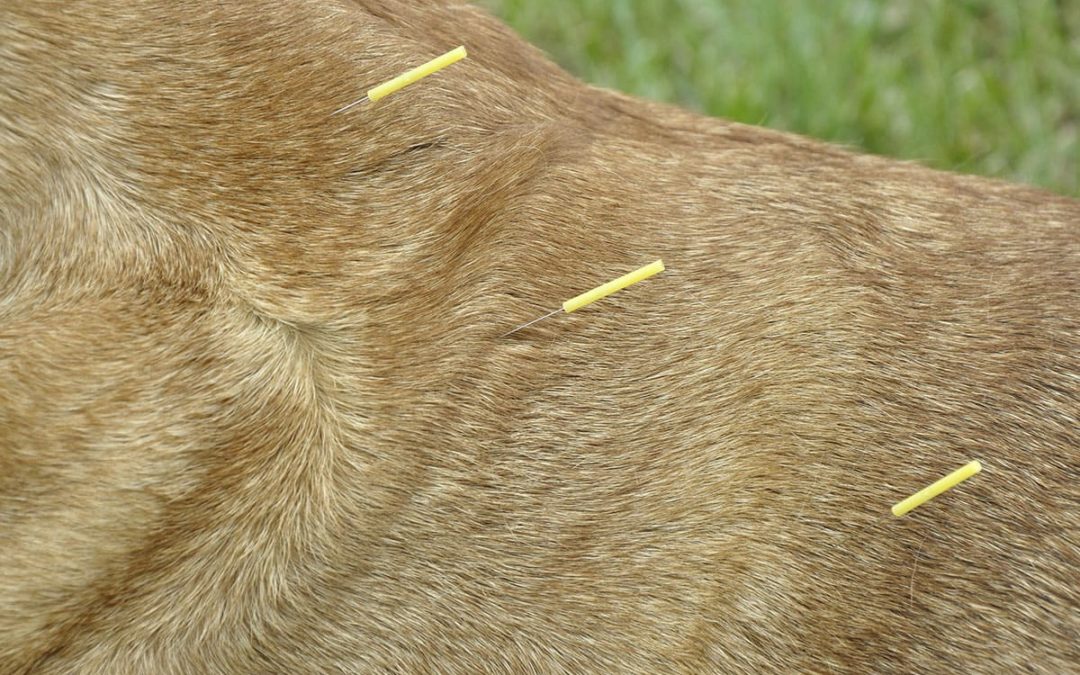What is Veterinary Acupuncture?
Acupuncture may be defined as the insertion of needles into specific points on the body to produce a healing response. Each acupuncture point has specific actions when stimulated. This technique has been used in veterinary practice in China for thousands of years to treat many ailments. The Chinese also use acupuncture as preventative medicine. Acupuncture is used all around the world, either along or in conjunction with Western medicine, to treat a wide variety of conditions in every species of animal. Clinical research has been conducted showing positive results in the treatment of both animals and humans, and the use of acupuncture is increasing. Acupuncture will not cure every condition, but it can work very well when it is indicated.
For Which Conditions is Acupuncture Indicated?
Acupuncture is indicated for functional problems such as those that involve paralysis, noninfectious inflammation (such as allergies), and pain. For small animals, the following are some of the general conditions which may be treated with acupuncture:
- Musculoskeletal problems, such as arthritis, intervertebral disk disease, or traumatic nerve injury
- Respiratory problems, such as feline asthma
- Skin problems such as lick granulomas and allergic dermatitis
- Gastrointestinal problems such as diarrhea
How Does Acupuncture Work?
Although acupuncture has its roots in ancient times before modern scientific methods were available with which to study it, many important studies have been done to indicate how acupuncture works and what physiologic mechanisms are involved in its actions. Using functional MRI (fMRI), to examine 15 different points, the basic tenets of acupuncture have been proven. Those are that acupuncture is based upon the point selected, the method of stimulation, and the duration of stimulation. Stimulation of these points results in specific changes in the central nervous system. It was shown that acupuncture points that have pain-relieving properties associated with them tend to activate specific pain-association brainstem regions. The National Institute of Health developed a consensus statement about acupuncture and its efficacy. NIH said that there was compelling evidence that acupuncture was useful in the management of osteoarthritis and musculoskeletal pain.
In western medical terms, acupuncture can assist the body to heal itself by affecting certain physiological changes. For example, acupuncture can stimulate nerves, increase blood circulation, relieve muscle spasm, and cause the release of hormones, such as endorphins (one of the body’s pain control chemicals) and cortisol (a natural steroid). Although many of acupuncture’s physiological effects have been studied, many more are still unknown. Further research must be conducted to discover all of acupuncture’s effects and its proper uses in veterinary medicine.
Is Acupuncture Painful?
For small animals, the insertion of acupuncture needles is virtually painless. The larger needles necessary for large animals may cause some pain as the needle passes through the skin. In all animals, once the needles are in place, there should be no pain. Most animals become very relaxed and may even become sleepy. Nevertheless, acupuncture treatment may cause some sensation, presumed to be those such as tingles, cramps, or numbness which can occur in humans and which may be uncomfortable to some animals.
Is Acupuncture Safe for Animals?
Acupuncture is one of the safest forms of medical treatment for animals when it is administered by a properly trained veterinarian. Side effects of acupuncture are rare, but they do exist. An animal’s condition may seem worse for up to 48 hours after treatment. Other animals become lethargic or sleepy for 24 hours. These effects are an indication that some physiological changes are developing, and they are most often followed by an improvement in the animal’s condition.
How Can My Pet Benefit from Acupuncture?
The success of the treatment will vary according to the skill of the veterinarian, the condition being treated and the number and frequency of acupuncture treatments. The length and frequency of the treatments depend on the condition of the patient and the method of stimulation (dry needle, electroacupuncture, aquapuncture, etc.) that is used by the veterinary acupuncturist. A simple acute problem, such as a sprain, may require only one treatment, whereas more severe or chronic ailments may need several treatments.
In general, acupuncture can be effectively combined with most conventional and alternative therapies. Certified Veterinary Acupuncturists have comprehensive training, knowledge, and skill to understand the interactions between different forms of treatment and to interpret the patient’s response to therapy.
If you are interested in learning more about Veterinary Acupuncture and whether it may be helpful for your pet, please contact Vergennes Animal Hospital at 802-877-3371 to schedule an appointment.





